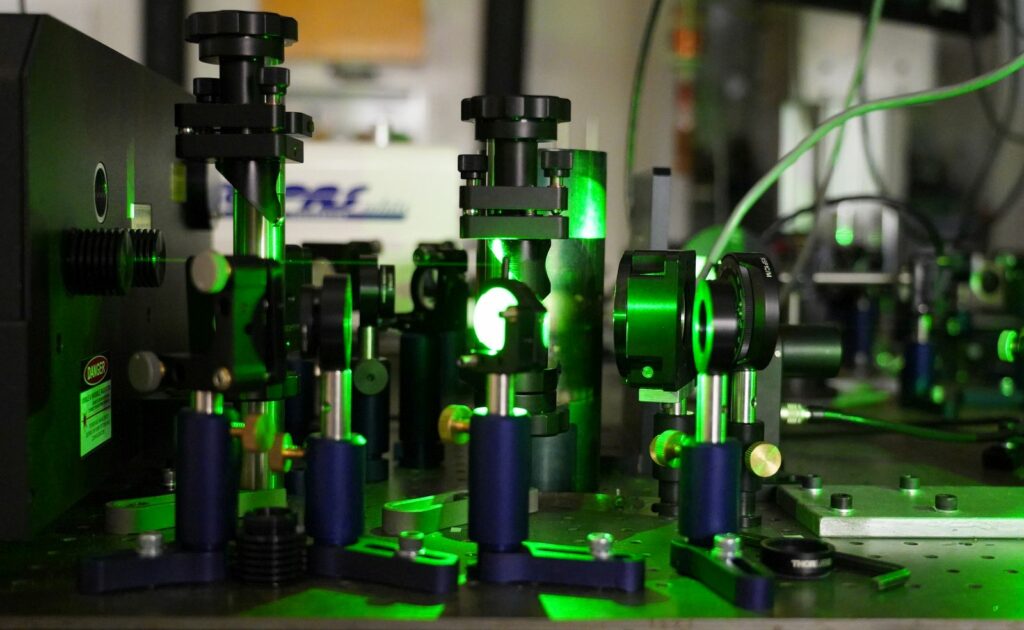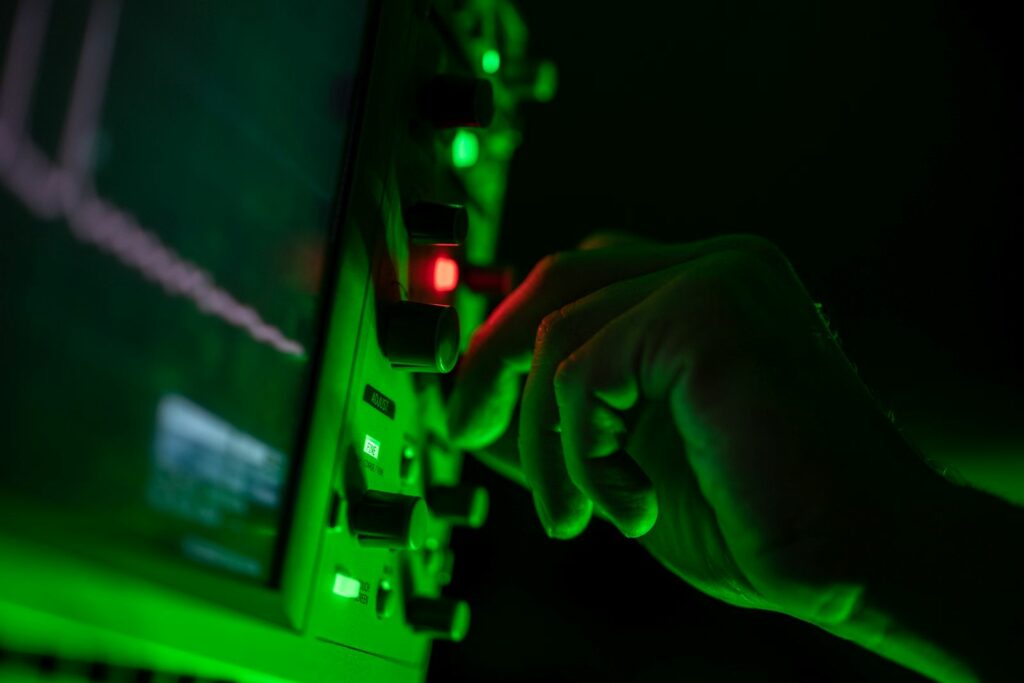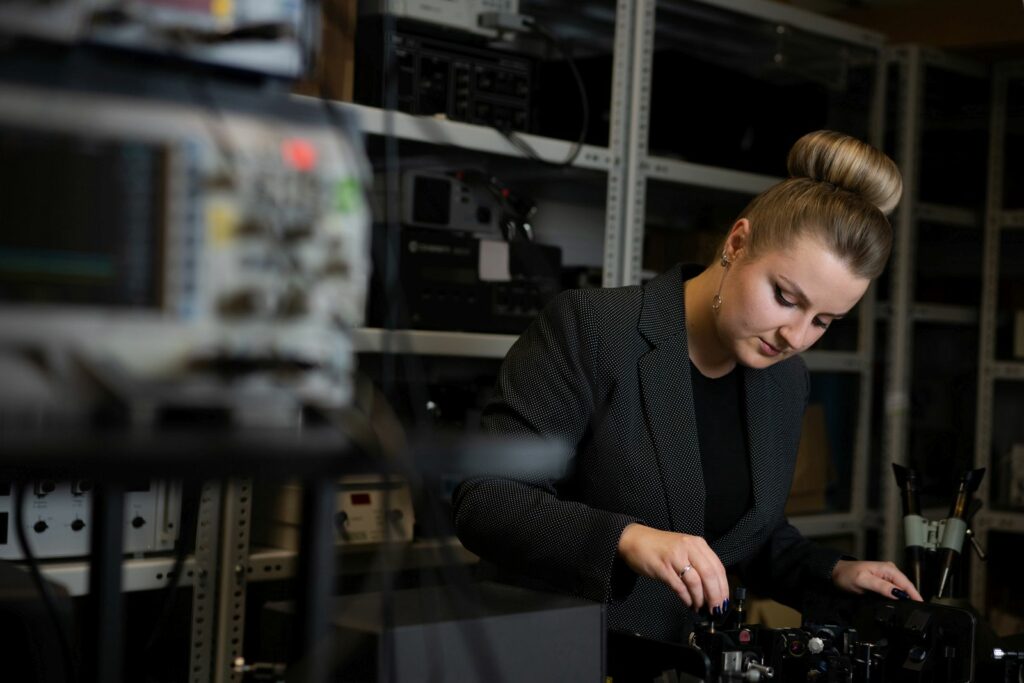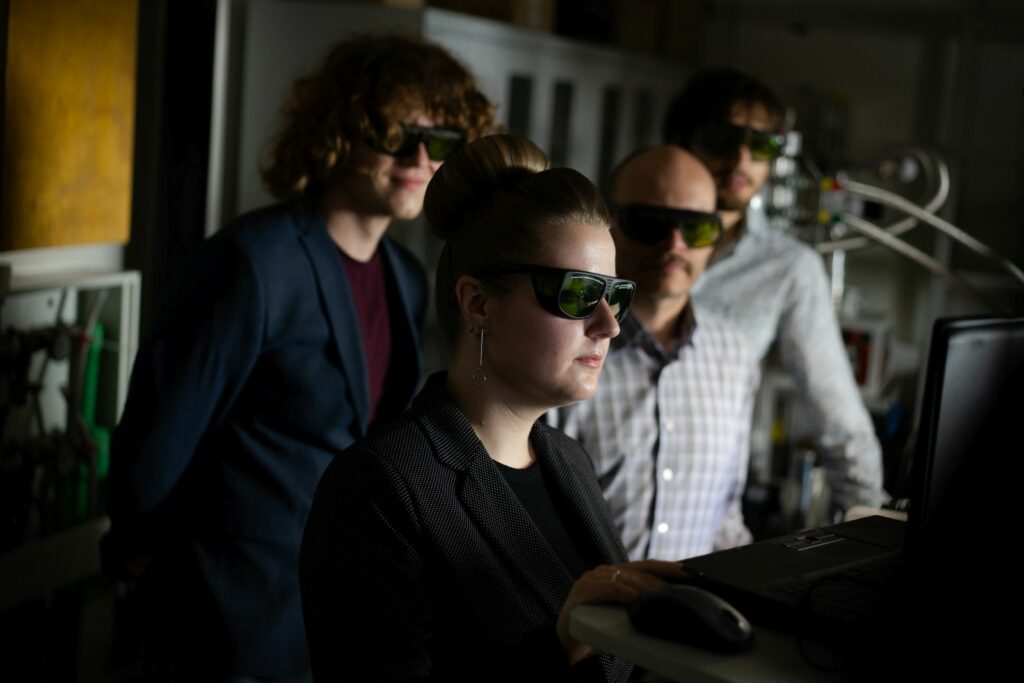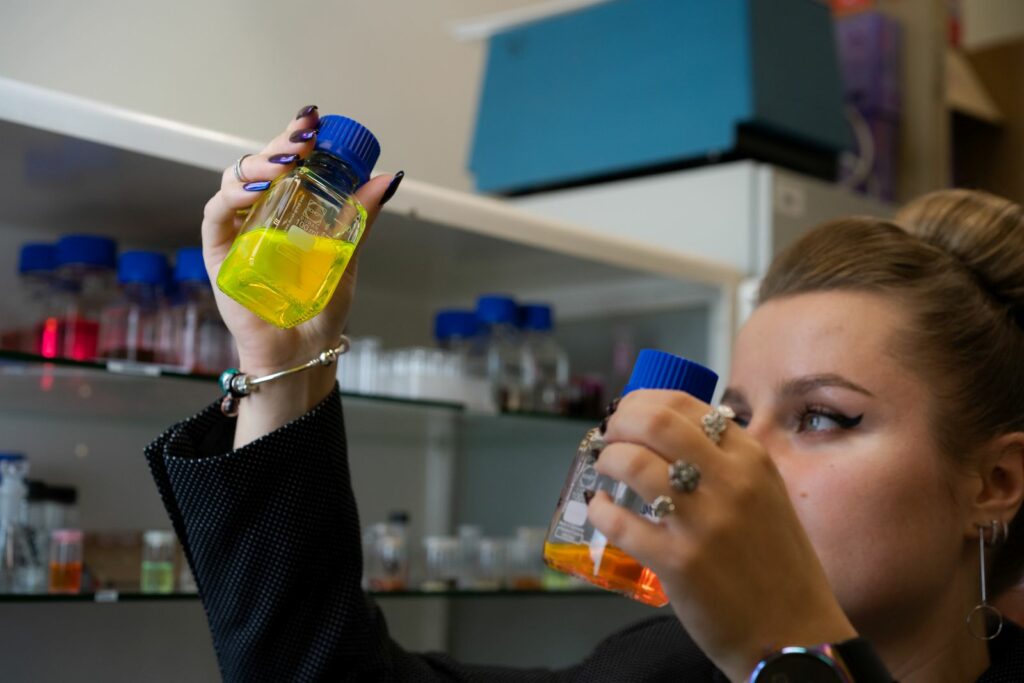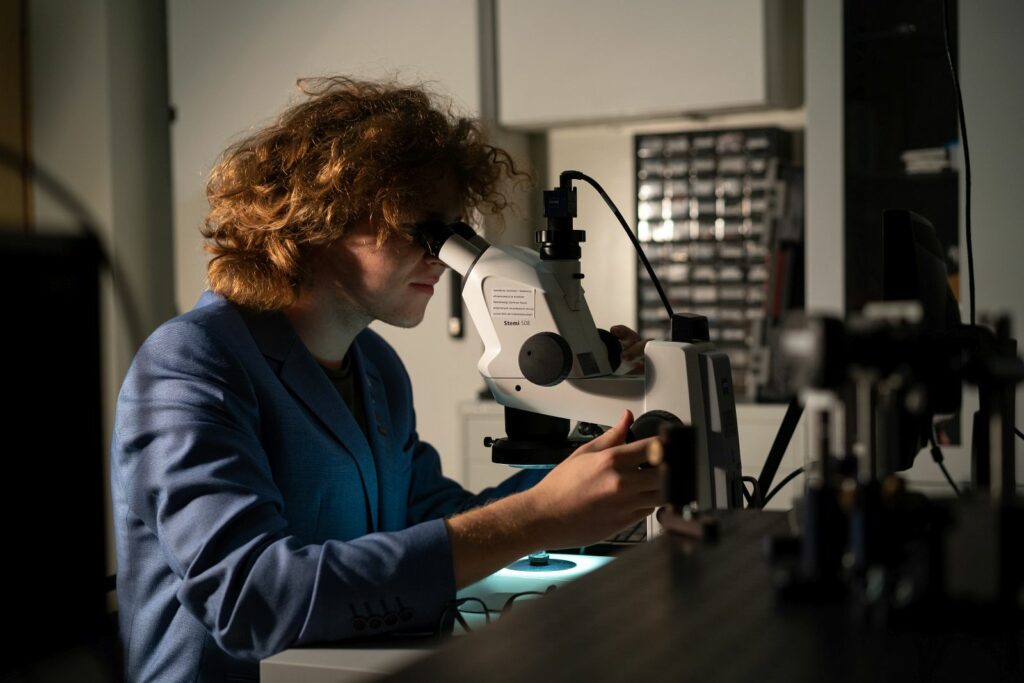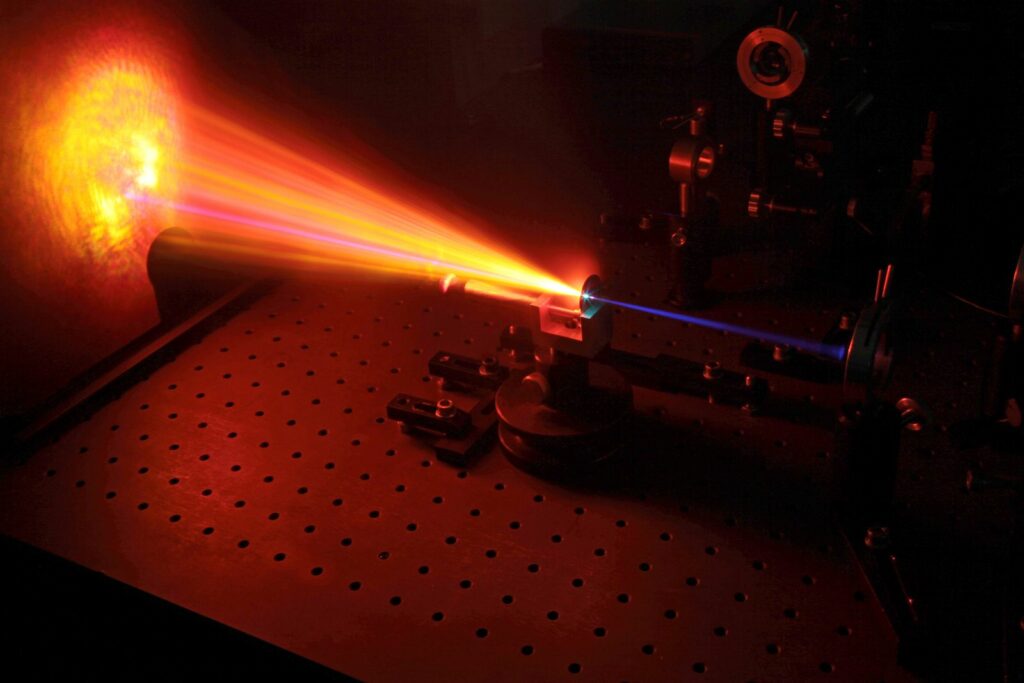Ultrafast Phenomena
Research carried out in the Ultrafast Phenomena Laboratory focuses on studies of photophysical properties of photoactive materials, in particular with applications of ultrafast time-resolved spectroscopy. The techniques applied in these studies use femtosecond laser pulses in order to initiate and probe ultrafast processes and to induce nonlinear optical phenomena. Currently the Laboratory is equipped with a complex femtosecond laser system, based on a Ti:Sapphire amplifier with three independently tunable optical parametric amplifiers.
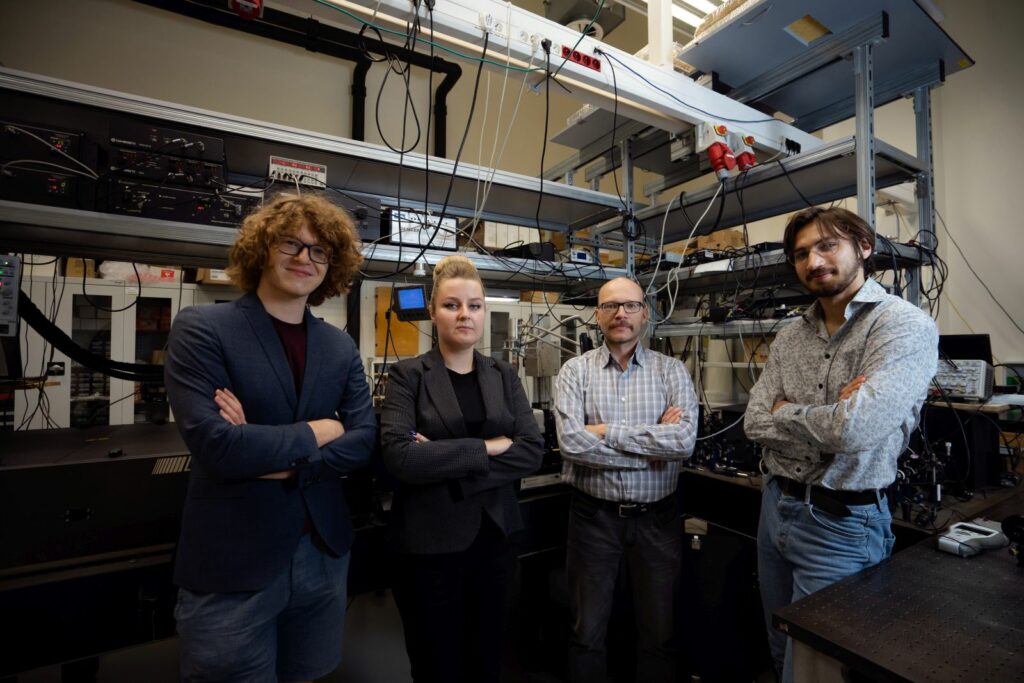
The system delivers ultrashort laser pulses, which are spectrally tuneable from ultraviolet up to middle infrared waves, and allows achieving various multi-pulse time-resolved spectroscopy schemes. Recently, it has been used, for example, for studying:
- quantum tunnelling in organic molecules by measurements of transient absorption anisotropy,
- intermediate species formed at phase boundaries during phase transfer catalysis by second harmonic generation at liquid/liquid interfaces,
- aggregation of peptides by observation of amplified spontaneous emission,
- nonlinear optical properties of peptides by z-scan measurements in the UV range,
- light amplification in novel organic dyes, capable of two-photon excited lasing.

A supplementary source of femtosecond laser pulses is a tunable Ti:Sapphire oscillator used for time-resolved emission spectroscopy, mainly for studies of photoactive materials such as photosensitizers for photodynamic therapy or fluorescence markers for bioimaging.
The Laboratory has also a very large collection of optical and optomechanical elements as well as diagnostic and measurement equipment. Therefore, we can build experimental devices optimized for specific tasks and carry out measurements that otherwise would not be achievable.
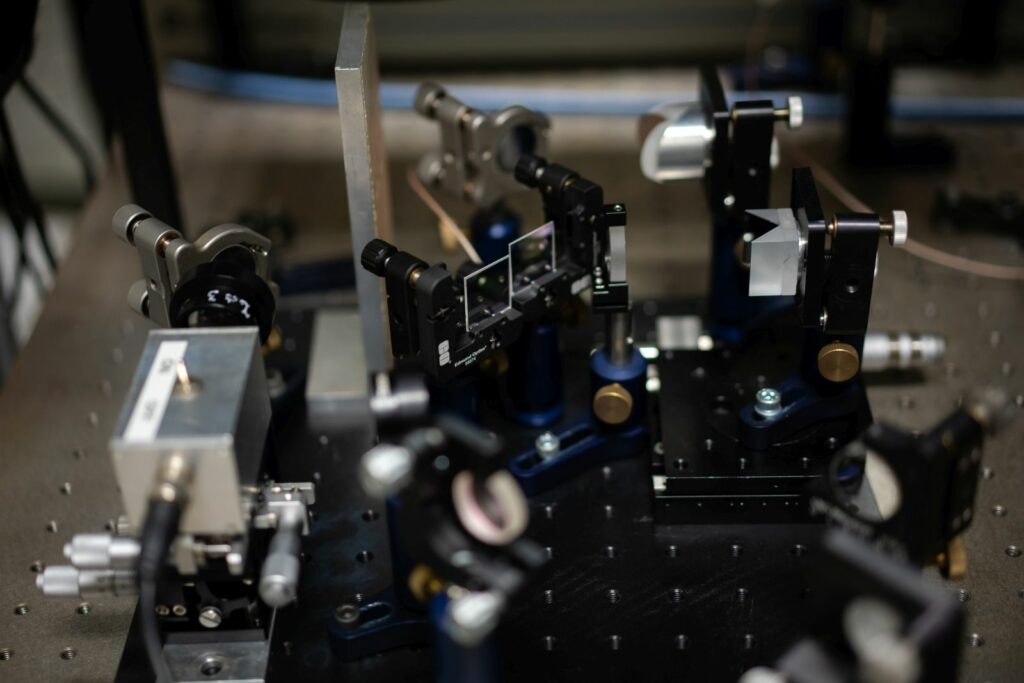
Contact
Group leader: dr hab. Piotr Fita, Piotr Fita@fuw.edu.pl
